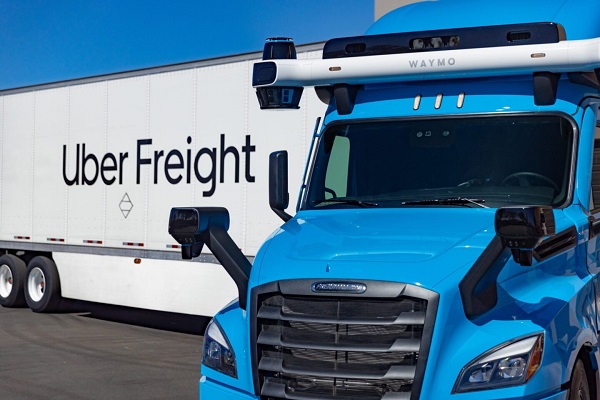The logistics and freight industry is the backbone of economic growth, connecting businesses to markets and facilitating trade across regions.
As Africa continues to experience rapid urbanization and economic expansion, efficient logistics solutions are more crucial than ever. Uber Freight, a subsidiary of the global ridesharing giant Uber, has disrupted the traditional freight industry with its digital platform.
But what role can Uber Freight play in Africa’s evolving logistics landscape?
Understanding Uber Freight
Uber Freight operates on a straightforward concept: connecting shippers and carriers through a digital platform. Much like its ridesharing counterpart, Uber Freight uses technology to simplify and optimize the logistics process. It allows carriers to browse for available shipments, ensuring better resource utilization, while giving shippers access to a reliable network of carriers.
Globally, Uber Freight has already demonstrated its ability to reduce inefficiencies and provide transparency. Its entry into Africa holds great promise but comes with unique opportunities and challenges.
Opportunities for Uber Freight in Africa
1. Bridging Logistics Gaps
Africa’s logistics sector is plagued by inefficiencies, including poor infrastructure, fragmented supply chains, and a lack of transparency. Uber Freight’s technology-driven model can address these gaps by:
- Improving Connectivity: Linking shippers with carriers more efficiently.
- Transparency: Offering real-time tracking and cost visibility.
- Data Insights: Helping businesses optimize their supply chains using analytics.
2. Supporting Small and Medium Enterprises (SMEs)
Africa’s economy is driven by SMEs, many of which struggle with logistics costs and inefficiencies. Uber Freight can empower these businesses by providing affordable and reliable freight solutions, enabling them to compete more effectively.
3. Enhancing Cross-Border Trade
With initiatives like the African Continental Free Trade Area (AfCFTA), cross-border trade is set to grow. Uber Freight’s ability to simplify logistics across regions aligns perfectly with this trend. By streamlining cross-border freight, it can contribute to increased trade volumes and economic integration.
4. Job Creation for Truckers
Uber Freight’s model provides truck drivers with better access to shipping opportunities, improving their earnings and working conditions. In Africa, where unemployment is a significant issue, this could create meaningful income opportunities for drivers.
5. Leveraging Mobile Connectivity
Africa is home to over 800 million mobile phone users, with increasing internet penetration. Uber Freight’s app-based system is well-suited for a continent where mobile technology has leapfrogged traditional infrastructure.
Challenges Facing Uber Freight in Africa
1. Infrastructure Limitations
Despite progress, Africa’s road networks remain underdeveloped in many regions, increasing transportation costs and delays. Uber Freight will need to navigate these infrastructural challenges to ensure its platform remains viable.
2. Regulatory and Bureaucratic Barriers
Complex customs regulations, licensing requirements, and corruption can hinder smooth operations. Uber Freight must work with governments and regional bodies to streamline processes and build trust.
3. Competition from Local Players
Africa’s logistics sector has seen the emergence of local technology-driven platforms like Kobo360 and Lori Systems. Uber Freight will need to differentiate itself while addressing local market needs to compete effectively.
4. Digital Adoption Barriers
While mobile connectivity is high, digital literacy and access to smartphones remain challenges in some regions. Uber Freight must invest in education and user-friendly technology to gain traction.
5. Environmental Concerns
As global sustainability pressures mount, logistics providers are expected to adopt greener practices. Uber Freight must align with Africa’s growing focus on sustainable transport to remain competitive.
The Path Forward for Uber Freight
To succeed in Africa, Uber Freight must adapt its global model to the continent’s unique dynamics. Key strategies include:
- Building Partnerships: Collaborating with governments, local logistics companies, and NGOs to overcome regulatory and infrastructural challenges.
- Localized Solutions: Tailoring its platform to the specific needs of African markets, such as multilingual interfaces and flexible pricing models.
- Investing in Infrastructure: Supporting infrastructure development, such as warehousing and truck stops, to create a more seamless logistics network.
- Promoting Sustainability: Incorporating electric and fuel-efficient vehicles into its network to align with global and regional sustainability goals.
- Driver Training Programs: Offering training and resources for carriers to improve service quality and technology adoption.
Conclusion
Uber Freight’s entry into Africa represents a significant opportunity to modernize and optimize the continent’s logistics sector. By addressing inefficiencies, supporting SMEs, and enabling cross-border trade, it has the potential to unlock economic growth. However, success will require strategic adaptation to local challenges and a commitment to long-term investment.
As Africa continues to grow as a global trade hub, Uber Freight’s innovative approach could be a game-changer, driving the continent’s logistics industry into a new era of efficiency and connectivity.
Also Read
Real-time dry container tracking: Enhancing efficiency and reducing costs
Navigating geopolitical challenges in global supply chains
